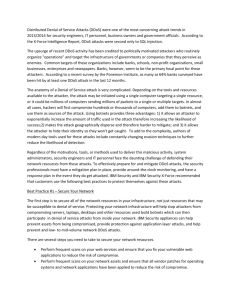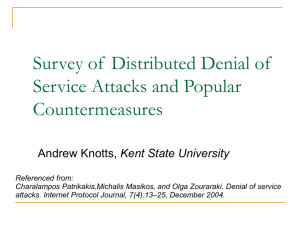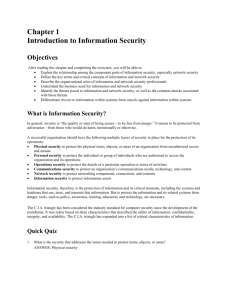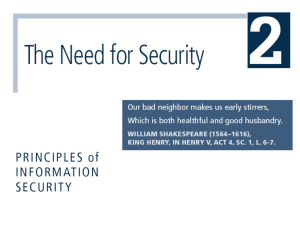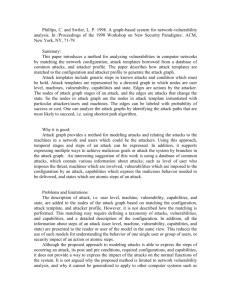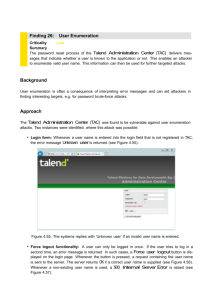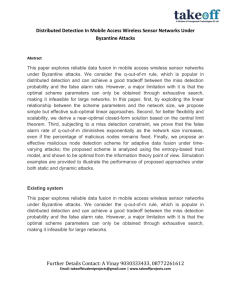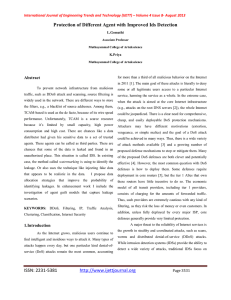Abstract
advertisement
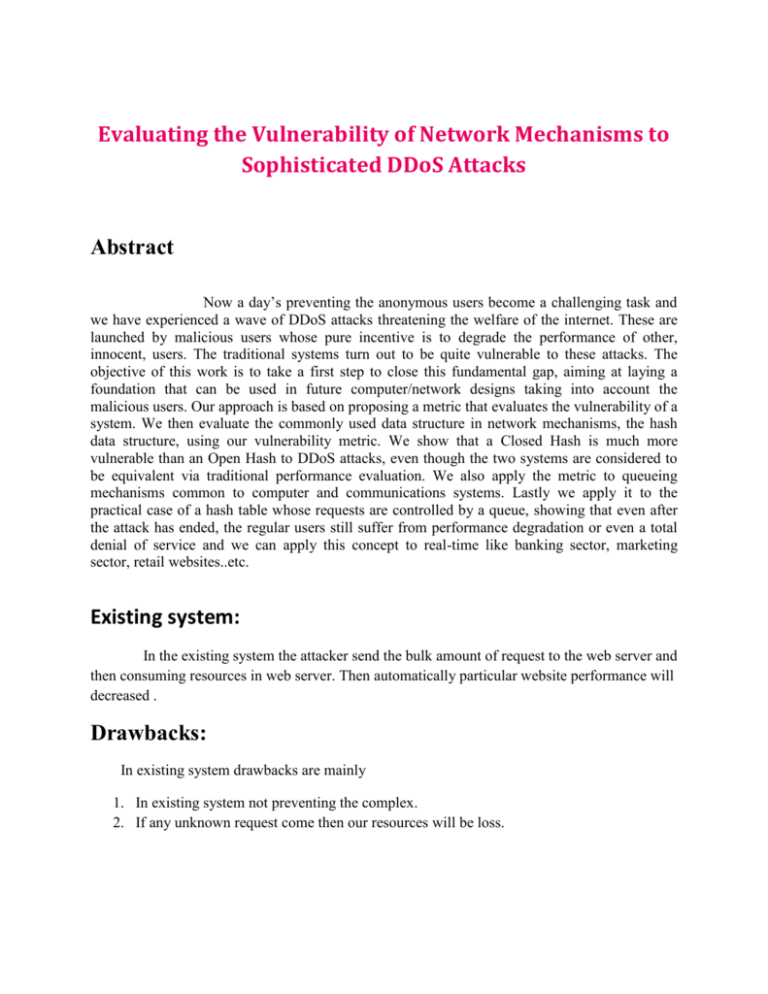
Evaluating the Vulnerability of Network Mechanisms to Sophisticated DDoS Attacks Abstract Now a day’s preventing the anonymous users become a challenging task and we have experienced a wave of DDoS attacks threatening the welfare of the internet. These are launched by malicious users whose pure incentive is to degrade the performance of other, innocent, users. The traditional systems turn out to be quite vulnerable to these attacks. The objective of this work is to take a first step to close this fundamental gap, aiming at laying a foundation that can be used in future computer/network designs taking into account the malicious users. Our approach is based on proposing a metric that evaluates the vulnerability of a system. We then evaluate the commonly used data structure in network mechanisms, the hash data structure, using our vulnerability metric. We show that a Closed Hash is much more vulnerable than an Open Hash to DDoS attacks, even though the two systems are considered to be equivalent via traditional performance evaluation. We also apply the metric to queueing mechanisms common to computer and communications systems. Lastly we apply it to the practical case of a hash table whose requests are controlled by a queue, showing that even after the attack has ended, the regular users still suffer from performance degradation or even a total denial of service and we can apply this concept to real-time like banking sector, marketing sector, retail websites..etc. Existing system: In the existing system the attacker send the bulk amount of request to the web server and then consuming resources in web server. Then automatically particular website performance will decreased . Drawbacks: In existing system drawbacks are mainly 1. In existing system not preventing the complex. 2. If any unknown request come then our resources will be loss. Proposed System: In our proposed system we need to prevent the complex requests from the anonymous users and utilize our resources properly.Then automatically we can improve the performance of the user and website. Advantages: 1.we can prevent the malicious users who are utilize our resources. 2.We can improve the performance of the website and no.of users. Problem Statement: In this project we overcome the problem of the existing system which is sophisticated DDos attacks so by using this project we can overcome this problem and we can improve the performance of our website as well as increase number of the users. Scope of the Project: 1.Online Retail websites: We can apply this concept to online retail websites because of most of the times this situation will be happened here. Then we can improve the performance of the user as well as website. 2.Banking Sector: In banking sector also we can apply this concept and improve the banking product in outside world. 3.Marketing Sector: In marketing sector most of the persons for dominating purpose he will sending the complex requests to popular website that’s why we can apply this concept and then overcome this problem. Architecture: Modules: Implementation is the stage of the project when the theoretical design is turned out into a working system. Thus it can be considered to be the most critical stage in achieving a successful new system and in giving the user, confidence that the new system will work and be effective. The implementation stage involves careful planning, investigation of the existing system and it’s constraints on implementation, designing of methods to achieve changeover and evaluation of changeover methods. Our project mainly consisting of 4 modules. Those are 1. Attacker Module. 2. Admin Module. 3. User Module. 4. Products Module. 1. Attacker Module: In this module attackers sending the complex requests to our website and consuming our CPU resources. That’s why normal users face the loading problem. 2. Admin Module Here admin can view the products and update the products. Whenever the authorized users purchase the products and will check the details and then decided the transfer the products to user account. He can control the entire trading organization means he can delete the users. 3. User Module: In this user module if user wants to purchase the products he should register in the website and he can view the all the products but he cannot update the products 4. Preventing attack In this module we were preventing the attacks from attacker side. That’s why we can save our resources and those resources utilized for normal users. System Specification: System Requirements Hardware Requirements: • System • Hard Disk • Floppy Drive : 1.44 Mb. • Monitor : 15 VGA Colour. • Mouse : 3D-optical mouse • Ram : 512 Mb. : Pentium IV 2.4 GHz. : 40 GB. Software Requirements: • Operating system : Windows 7. • Coding Language : ASP.Net 4.0 with C# • Data Base Literature Survey : SQL Server 2008. Literature survey is the most important step in software development process. Before developing the tool it is necessary to determine the time factor, economy n company strength. Once these things r satisfied, ten next steps is to determine which operating system and language can be used for developing the tool. Once the programmers start building the tool the programmers need lot of external support. This support can be obtained from senior programmers, from book or from websites. Before building the system the above consideration r taken into account for developi the proposed system.


